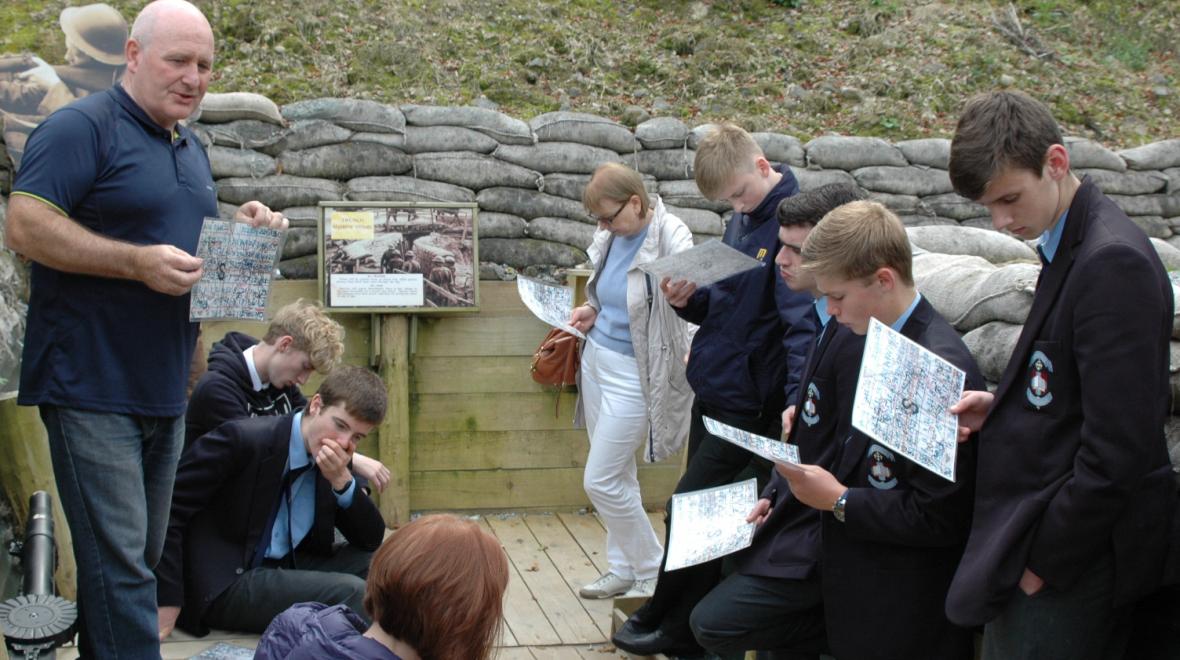Fermanagh County Museum – Peace Studies Project

Peace Studies is a four-year project led by Fermanagh County Museum, looking back at the First World War in the context of 2014-2018, which has engaged over 100 students.
Each year a group of students from St Michael’s College and Enniskillen Royal Grammar School examined the most important events in that centenary year and drew out local and personal stories.
The ultimate objective of this four year Peace Studies Programme was/is to see students (working in small groups) from both schools carrying out research on an individual who lived at the time of the First World War. The person (a soldier, civilian or relative) was selected by each group and researched with students producing a presentation based on their research journey.
Each year the project has visited the Ballyjamesduff Museum and its Trenches and recreation of the GPO in Dublin. The group also visit the Enniskillen War Memorial, the memorial window in the Enniskillen Presbyterian church and have also attended conferences organised by the Fermanagh Churches Forum, including inviting guest speakers.
In the final year of the project, students selected family members who survived the Great War with each group having a connection to at least one such family member.
What worked well and what, if anything, didn't?
Themes that were considered to be of great importance.
Deciding on an individual to research; the rationale for choice.
The experience of war 1914-18.
Trench warfare and the Western Front – by 1918, 32,000km of trenches existed across the Western Front.
The War memorial – the notion of commemoration in itself.
Is this a fitting tribute? Why are those names on the memorial?
Background – this period has attracted a great deal of attention from scholars and academics and so too has the question of how we should remember and commemorate all the events, battles and lives lost at this time.
For 1916, a difficulty arose when considering how to appropriately and respectfully commemorate the actions of the IRB rebels on Easter Monday 1916, while considering the huge juxtaposition between these men and the Irish men killed on July 1 on the first day of the Battle of the Somme.
The ultimate aim of work is to devise and develop a fitting commemoration within the comprehensive understanding of the period as a whole. A second question, ‘Why do we remember?’, is perhaps not as easy to ask or answer. The overarching them of the project has been to discover and unearth common ground.
Further Information
Catherine Scott, catherine.scott@fermanaghomagh.com


